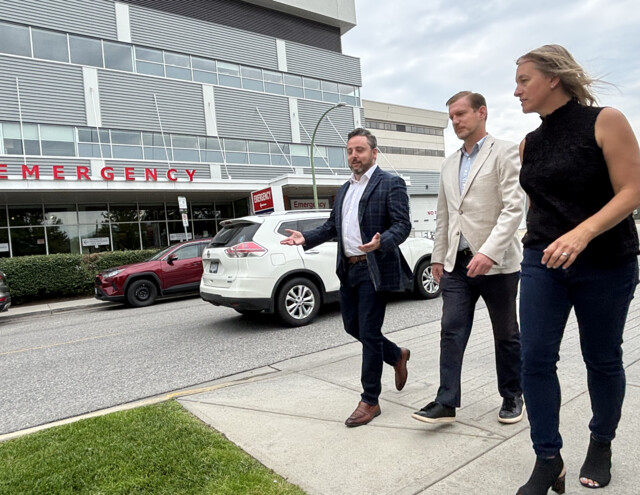As the Kelowna General Hospital faces mounting concerns over its pediatric unit closure, local MLAs have taken the extraordinary step of issuing a public challenge to British Columbia’s Health Minister to face affected families directly. The unprecedented cross-party effort highlights the growing community alarm as parents worry about critical gaps in children’s healthcare services.
“The closure of pediatric services at Kelowna General Hospital isn’t just a health policy decision—it’s a community crisis that deserves ministerial attention,” said Kelowna-Centre MLA Norm Letnick, who alongside fellow local representatives has called for Health Minister Adrian Dix to attend an upcoming town hall meeting on the issue.
The community’s frustration stems from Interior Health’s abrupt decision to suspend pediatric inpatient services at KGH earlier this summer, forcing families with seriously ill children to travel to larger centers like Vancouver or Kamloops for care. This decision has created what parents describe as a dangerous gap in regional healthcare infrastructure, particularly concerning for families in outlying communities who may face hours of emergency travel.
The coalition of local MLAs, including representatives from both the BC United and BC Conservative parties, emphasized the rare bipartisan nature of their appeal. “When it comes to children’s health, political differences disappear,” noted Kelowna-Mission MLA Renee Merrifield. “The minister needs to hear directly from families who are bearing the real burden of this decision.”
Healthcare professionals have joined the chorus of concern, with several pediatricians and nurses expressing alarm about the potential consequences of the closure. Dr. Sarah Richardson, a local pediatrician not affiliated with KGH, explained, “The reality is that children become critically ill unexpectedly. Having to transport them long distances during those critical first hours can significantly impact outcomes.”
Interior Health has defended the suspension as a temporary measure necessitated by staffing shortages, particularly among specialized pediatric nurses. Hospital administration claims they are actively recruiting to restore the service, but critics argue the health authority hasn’t committed to firm timelines or sufficient retention strategies.
The town hall, scheduled for next Thursday at the Rotary Centre for the Arts, has already registered more than 300 participants, reflecting widespread community interest. Organizers have reserved a seat for Minister Dix, though his office has not yet confirmed his attendance.
Parent advocacy groups have collected over 7,000 signatures on a petition demanding immediate action to restore pediatric services. “We’re not asking for special treatment,” said Jennifer Morris, whose daughter required emergency care last year. “We’re asking for the basic healthcare infrastructure that a city of Kelowna’s size deserves.”
The situation highlights broader challenges in British Columbia’s healthcare system, including critical staffing shortages in specialized areas and questions about resource allocation between urban centers and regional hospitals. While Vancouver’s BC Children’s Hospital offers world-class care, the practical challenges of accessing that care from hours away have become a central concern for Interior families.
As we watch this situation unfold, we must consider the fundamental question facing communities across Canada: In our effort to centralize specialized care, are we inadvertently creating dangerous gaps in regional healthcare that put our most vulnerable citizens at risk?























